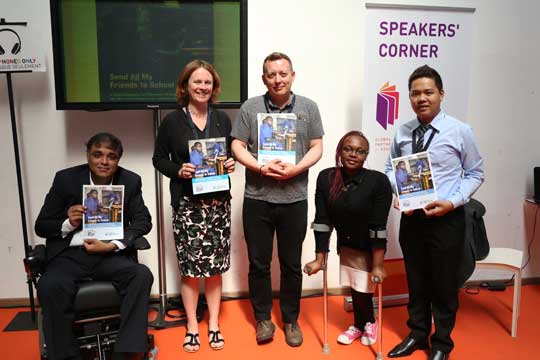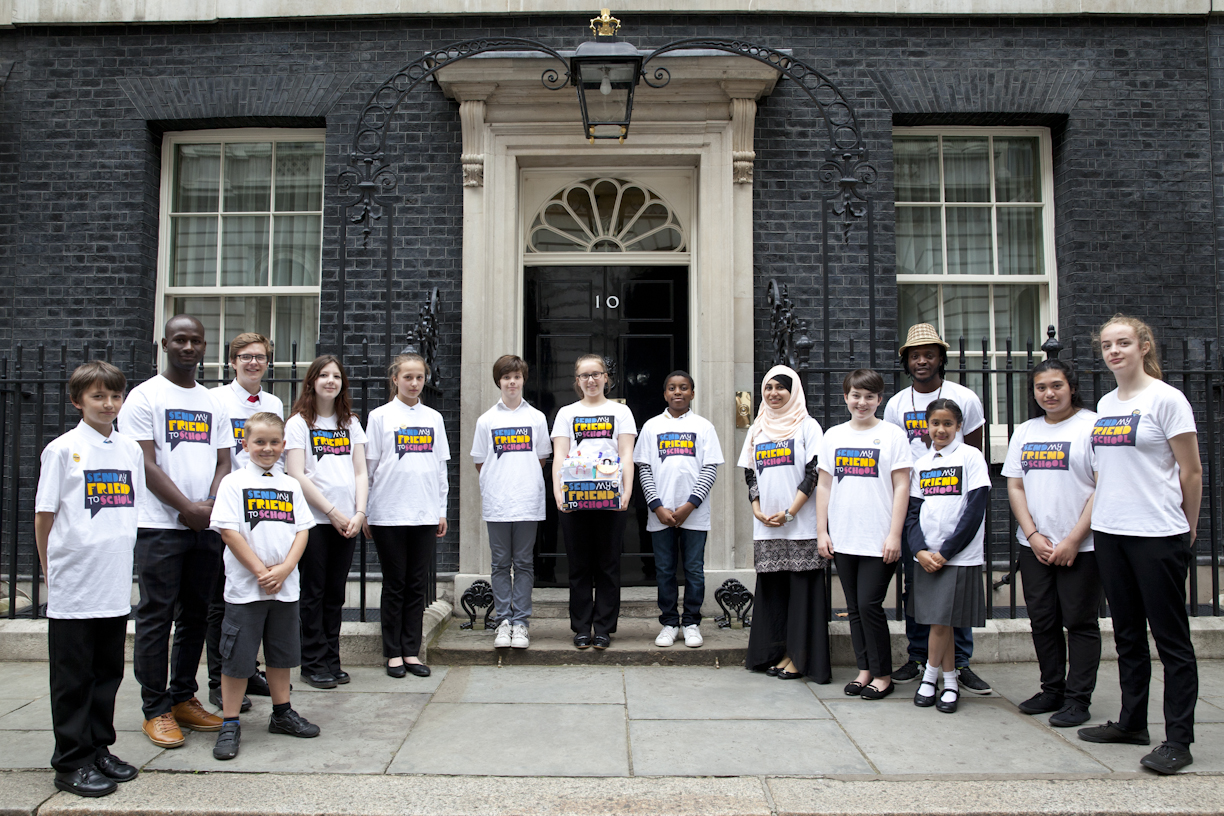Millions of children with disabilities are missing out on school. A new report from the Global Campaign for Education UK investigates what the UK is doing to help.
A new report reviewing how the UK Department for International Development (DFID) has to date addressed the educational needs of children with disabilities, is being launched today in Brussels at The Global Partnership for Education (GPE) Replenishment Conference. The conference aims to secure commitments from donors to support efforts to ensure a quality education for all in developing countries.
At this Conference, education campaigners are asking the UK government to confirm its leadership in aid to education by giving a strong pledge of financial support to GPE as well as following the strategy and policy recommendations laid out in this report. Unless this is done the hardest to reach children – children with disabilities, girls and children living in remote and rural areas – will continue to miss out on their right to an education.
The new report, Send ALL My Friends to School – A Global Campaign for Education UK (GCE UK) evaluation of the UK’s aid to education for children with disabilities reveals a major gap between DFID’s policy and practice, with weak implementation, as a result of a lack of resources and capacity.
As the 2015 deadline for achieving the Millennium Development Goal 2 (universal primary education) and the Education for All goals fast approaches, there are still 57 million primary aged children out of school. In most low and middle-income countries, children with disabilities are more likely to be out of school than any other group of children. It is estimated that at least one third of children out of school have a disability. That is, at least 19 million children with a disability who currently do not go to school.
GCE UK’s report highlights that there is an urgent need for a significant increase in policy attention and resources to address the major structural and social barriers that children with disabilities currently face in accessing education.
GCE UK’s report makes the following key recommendations:
- Embed and prioritise disability into DFID’s education strategy and policies
- DFID should be a global champion for children with disabilities
- Embed and prioritise disability into DFID’s education progress and funding
- Strengthen DFID’s research and evaluation gathering capacity on education for children with disabilities.
Rob Doble, lead researcher and report writer said: “Our research shows DFID has made some positive steps to target funding and prioritise the needs of children with disabilities in their programmes. In Ethiopia, for example, DFID has worked hard to ensure disabled learners thrive in school by supporting teacher training and direct grants for children. Much more now needs to be done, however, as children with disabilities continue to be left out of the classroom and pushed to the margins of society.
“DFID must take a more comprehensive approach through its multilateral and bilateral programmes, including working closely with partners like the Global Partnership for Education to ensure global efforts are properly co-ordinated and give all children, including the most vulnerable, the best start in life.”
Stephen Nock, Co-Chair of the GCE UK Policy Group said: “In recent months the UK Ministers have made some positive commitments, but it is clear that there is still a huge gap between what they say and what is being done for children with disabilities. The education goals won’t be met without a much bigger and more systematic focus on enabling children with disabilities to go to school and get good quality education.
“Without such an focus, children with disabilities will continue to be denied their right to education and the government’s promise to ‘leave no one behind’ will be broken.”
Download a copy of the full report here.
Photo: representatives from GCE UK member organisations and young campaigners launching the new report at the GPE conference in Brussels.
Credit: © Tom Maguire / RESULTS UK



 Send My Friend to School brings together thousands of children across the UK to speak up for the right to education.
Send My Friend to School brings together thousands of children across the UK to speak up for the right to education.